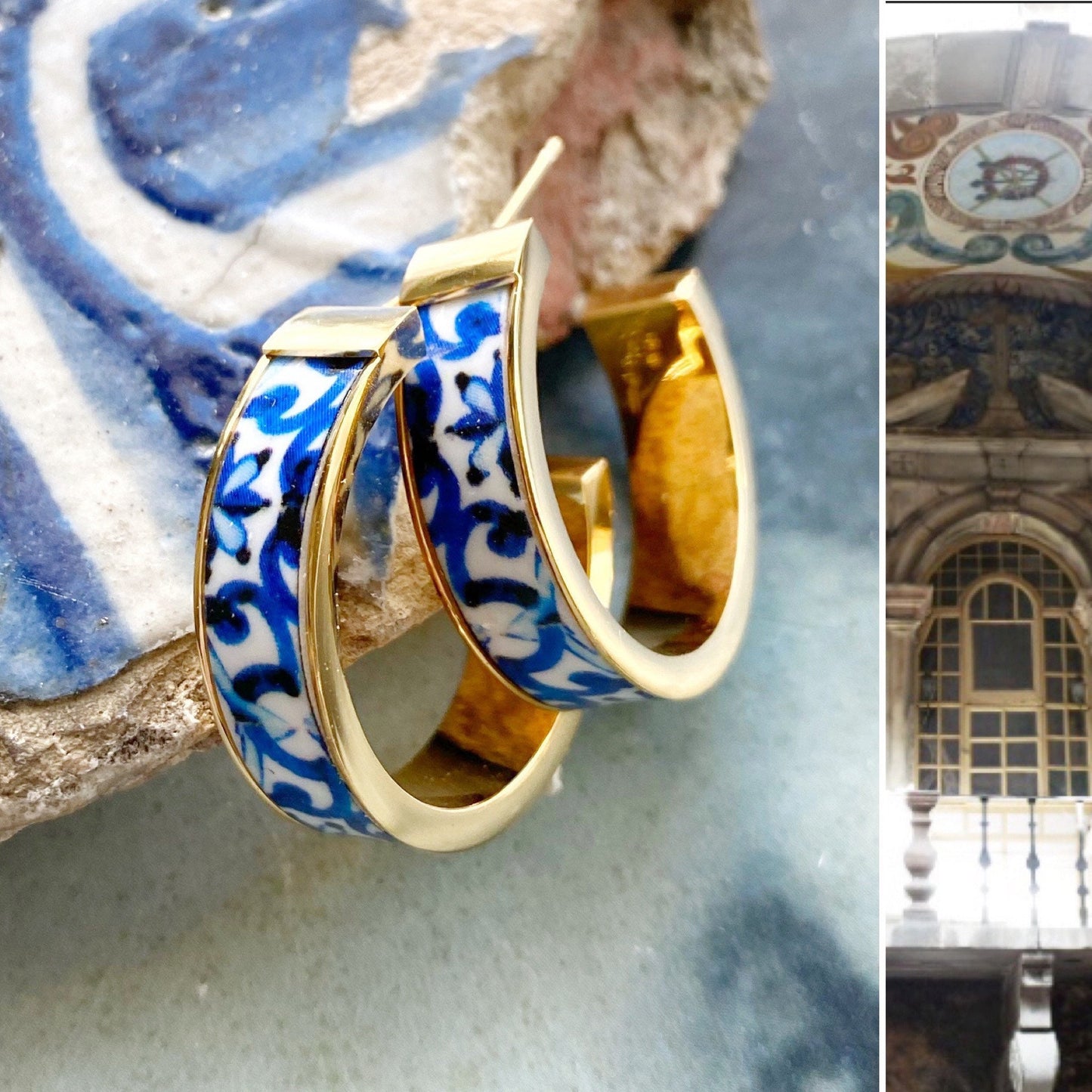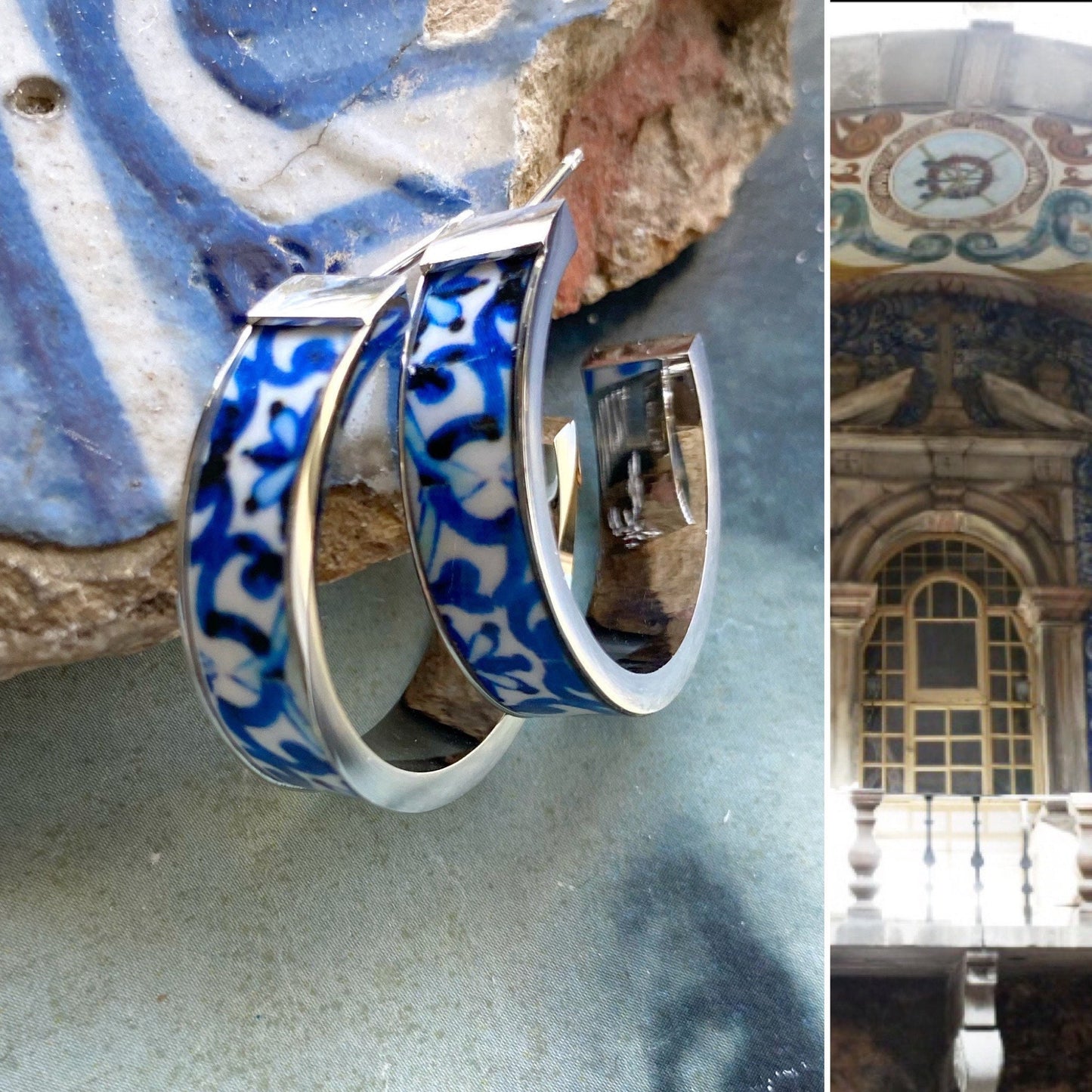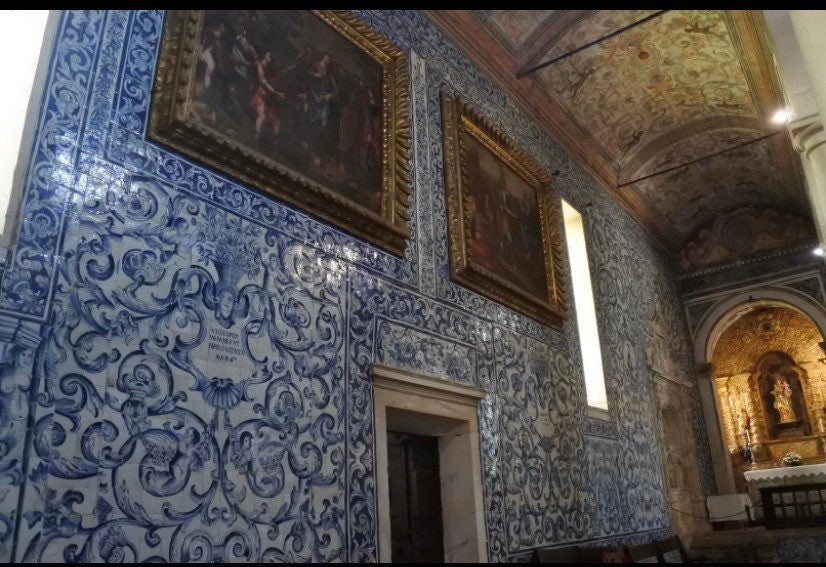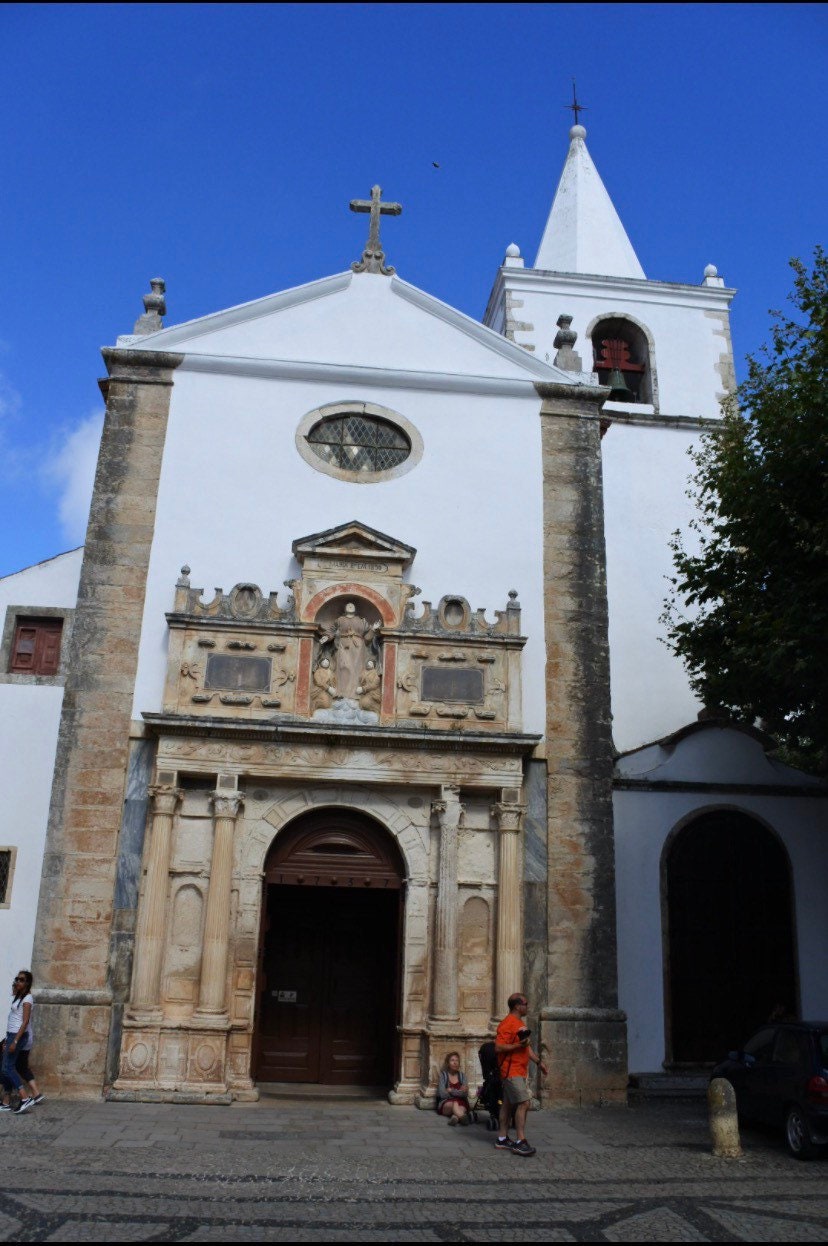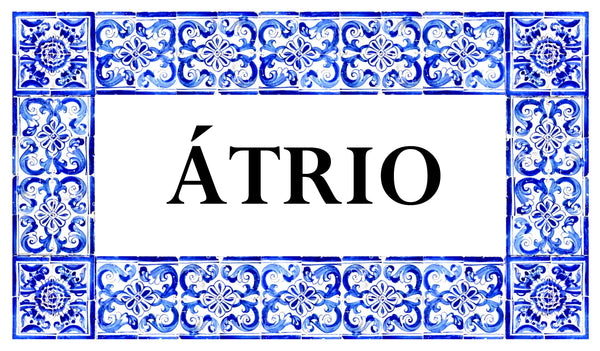Atrio Tiles
Atrio Hoop Earrings Tiles 1" Post Óbidos Majolica Stainless Steel Hypoallergenic Minimal Ships from USA Gold or Silver Gift for Her
Atrio Hoop Earrings Tiles 1" Post Óbidos Majolica Stainless Steel Hypoallergenic Minimal Ships from USA Gold or Silver Gift for Her
Couldn't load pickup availability
These earrings are cute small gold hoops 1" with a 6mm wide bottom. They have a Portuguese tile replica inlay. They are a perfect gift and will come with lovely packaging for yourself, a friend, coworker, sister, mom, wife or girlfriend! Perfect little pieces of Portuguese history!
These sweet hoops are 1" in diameter and are 6.3mm wide. They will come in a gift box.
These tiles can be found inside the Correios of Óbidos.
According the the Visit Portugal site, here is the history of the church:
According to tradition, the origin of this church dates back to the Visigothic period, having been converted into a mosque during the Muslim period and converted to Christianity after D. Afonso Henriques conquered the village in 1148, consecrating it to Marian Devotion.
From 1210, the town of Óbidos became part of the Casa das Rainhas, benefiting from the artistic and religious patronage of the Crown for the next six hundred years. The various modifications in the Church of Saint Mary are testament to this fact.
The temple that today sits in the Santa Maria Square, at the bottom of the Rua Direita main street, dates from the 16th century and was built by the initiative of Queen D. Leonor, wife of D. João II. It was in this church that, on August 15, 1441, the infant D. Afonso (later King D. Afonso V of Portugal) married his cousin D. Isabel, at the ages of ten and eight. From 1571, given its state of ruin, it was thoroughly renovated by order of Queen D. Catherine of Austria, to its present configuration.
At the entrance, on the Mannerist portal, one sees an image of Our Lady of the Assumption, patroness of the parish. Next to the altar the Renaissance tomb of D. João de Noronha ("The Lad"), captain of Óbidos in the 16th century, deserves to be admired. It is a masterpiece of Renaissance tomb sculptures, attributed to Frenchman Nicolau Chanterenne. In addition, one can observe paintings by Baltazar Gomes Figueira and the famous Josefa de Óbidos (1634-1684), which combined the profane and the sacred in atmospheres of soft sensuality and mysticism, as in the altarpiece dated 1611, which represents the Mystic Marriage of Santa Catarina, on show in the sacristy. Much of the work of this remarkable painter (and of the church's collection) is preserved in museums, particularly in Óbidos. The walls, covered top to bottom with 17th century tiles and painted wood, create a beautiful decorative effect, designed by Francisco de Azevedo Caminha, also in the 17th century.
In the square to the front of the church, the stone pillory is decorated with a fishing net. D. Leonor wanted to pay tribute to the fishermen who gathered the body of her son D. Afonso, who had died following a horse fall near the Tagus, in a net.
According
The term Azulejo or Tile dates back to the time of Arab occupation of the Iberian Peninsula. The term "azulejo is derived from the Arab word (al zulej) which means a smooth and polished stone. It wasn't until the 16th century that the process was perfected into the tile we know today.
+ Please note that some of our items will come with a tag stating "Return only accepted if tag is attached". There are no exceptions to this policy.
Wear a Piece of History!
All my tiles are replicas made of polymer clay where the image actually becomes part of the clay through baking. No glue is used in the process. The pieces become waterproof and scratch resistant. Due to the handmade and hand shaped nature of each tile, slight variations will occur, as no two pieces are alike.
Please feel free to email me with any questions you may have.
Thank you,
Atrio
🌸 Favorite our shop for updates
🌿 Follow us on Instagram @atrio_azulejos
🌿Follow us on Facebook https://www.facebook.com/o.Atrio/
+All items will come in a gift box ready for gift giving.
Although the tiles are water resistant, care should be taken to keep the tiles and metal out of water and away from lotions, including cosmetics, sunscreen, hairspray, etc. The chemicals in these products will dull the finish on the tiles.
🌸🌸🌸🌸🌸🌸🌸🌸🌸🌸🌸🌸🌸🌸🌸🌸🌸🌸
QUESTION: Are your tiles real antique Portuguese azulejo tiles?
ANSWER: Absolutely not. In our description of each item, we try to call attention to the theft and destruction of antique Portuguese tiles. Even the tiles found in flea markets and antique stores were most likely stolen off a building during the night. We have seen entire home facades disappear during the night to thieves. Thankfully, Portugal just passed a law declaring this theft a crime. We can only hope that it will one day be enforced.
For this reason, we have no part in this despicable crime. We make our own tiles from polymer clay. Ceramic would be far too heavy for earrings and impossible to mold into the shapes we want. For the hoops, we mold the clay as thin as we can get it, so that it will look pretty inside the hoops
🌸 Favorite our shop for updates
🌿 Follow us on Instagram @atrio_azulejos
🌿Follow us on Facebook https://www.facebook.com/o.Atrio/
+All items will come in a gift box ready for gift giving.
QUESTION: What kind of metal is it?
ANSWER: SOLID STAINLESS STEEL
If it is gold tone, it has a real gold wash. It is not gold plated. Stainless steel is hypoallergenic and lightweight.
Share
